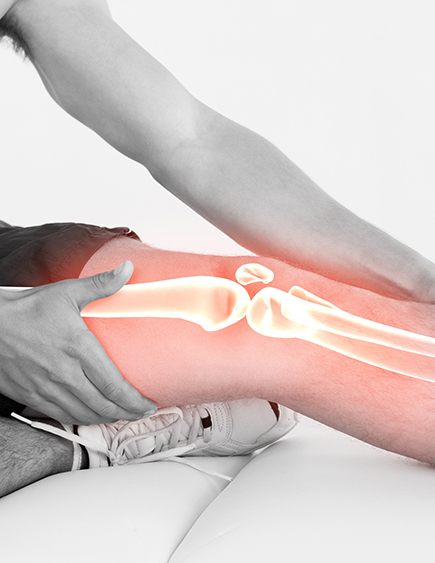Top Pain Doctors Reveal Tips to Find the Best Knee Pain Specialist Near Me
If you search for a “knee pain specialist near me”, your initial results might frighten you a bit. Seeing phrases like “knee replacement surgery”, “rheumatoid arthritis”, and “orthopedic surgeon” make you wonder why you bothered to use the internet just to rouse your anxiety. However, knee replacement surgery and consulting with an orthopedic surgeon aren’t the only results you’ll find from an online search. At the top of the search queue you’ll also see “Pain Treatment Specialists”, a team of board certified and Ivy League-educated pain doctors who use cutting-edge and minimally-invasive treatments to manage chronic knee pain. While knee pain is a common issue, living with chronic knee pain doesn’t have to alter future home renovation plans.

What Can a Knee Pain Specialist Near Me Do For Chronic Knee Pain?
Because the causes of knee pain are vast, it is important to search for a “knee pain specialist near me” who is trained to identify a knee injury, as well as chronic knee pain. Your primary care doctor is a good place to start, and they may recommend weight loss combined with RICE (rest,ice, compression, elevation) to treat your chronic back pain. However, meeting with a primary care doctor is not the same as meeting with a specialized back doctor. At Pain Treatment Specialists, our board certified interventional pain doctors have a wide variety of cutting-edge treatments designed to promote healing and provide treatment for your knee pain. Some of the available treatment plans include:
- Steroid Knee Injection: Also known as corticosteroids, this medication can be administered in a variety of ways to reduce knee inflammation and knee pain. This fast-acting injection provides immediate relief of irritated and inflamed joints, bursa, and tendons
- Genicular Nerve Block: This cutting-edge procedure (also known as “G Block”) blocks the sensory nerves that transmit pain to the brain. It can also be used as a diagnostic tool to identify the progression of arthritis.
- Physical Therapy: The goal of physical therapy is to improve mobility, relieve pain, and target specific exercises that strengthen your knee. Also known as rehab, this treatment for knee pain can address both knee injuries as well as chronic knee pain. Your physical therapist will create a specialized pain treatment plan to address your specific chronic knee pain concerns.
If you’re afraid that knee replacement surgery is the only option for your chronic knee pain, you owe it to yourself to contact the pain doctors at Pain Treatment Specialists to see what other treatment options exist.

Symptoms of Chronic Knee Pain
Once you’ve searched for “knee pain specialist near me” and find an expert pain doctor, your consultation will discuss a variety of concerns, beginning with the symptoms of your knee pain. Since your interventional pain specialist has a wide variety of pain treatment options, knowing your specific joint pain or knee pain is critical to finding the correct diagnosis. The following are common symptoms of chronic knee pain:
-
- Localized swelling or stiffness of the knee
- Redness and warmth
- Instability or general weakness while standing
- Crunching or popping sounds
- Inability to fully straighten your leg
- Knee feels like it is “giving out” while you stand, walk, or run
Describing your symptoms honestly with your pain doctor is critical to identifying the cause of your discomfort. Know that the team at Pain Treatment Specialists are compassionate while listening to patients describe knee pain, and their Ivy League-educated pain doctors treat each patient with the best care for their chronic knee pain.
What are the Causes of Chronic Knee Pain?
Knee pain can center around your kneecap (patella), the knee joint (tibia or femur), knee cartilage (meniscus), or various tendons and ligaments that surround the knee. Your pain doctor may identify that your knee pain comes from one of the following issues:
- Acute Injury: When you hit, bump, or twist your knee and then experience pain, it is likely that you have experienced an acute knee injury. More specifically, an acute injury can affect fall under the following areas:
-
- Ligamentous Injury: This is a tear that affects the ligaments which stabilize the knee and can lead to pain and knee joint dysfunction. For example, an ACL (anterior cruciate ligament) tear is common among athletes because it is one of the ligaments connecting your shin bone to your thigh bone.
- Torn Meniscus: This is the “shock absorber” between your thigh bone and shin bone. A torn meniscus occurs if you’ve made a sudden twist while also putting pressure on your leg.
- Chronic Conditions: A chronic condition is one that can occur from overuse or through repetitive motions of your knee. Some examples of chronic conditions include:
-
- Patellar Tendonitis: Also known as “jumper’s knee”, this pain is typically felt while running downhill or descending stairs. Stress on the patella tendon while running, jumping, or kicking causes this type of tendonitis.
- Bursitis: Bursa are tiny, fluid-filled sacs near your joints, and either through aging or repetitive motions the sacs become inflamed.
- Medical Conditions: A medical condition, which is diagnosed by a general physician, can lead to knee pain. A common condition that leads to knee pain is rheumatoid arthritis, an autoimmune disease that causes swelling of the joints along with severe pain.
Don’t waste another weekend on the couch when you could be up on a ladder! Search for the best “knee pain specialist near me” and you’ll see how the team at Pain Treatment Specialists can return you to a pain-free life.



















